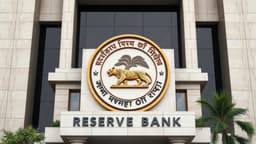Home / Business and Economy / Thai Baht Weakening: Central Bank Signals Policy Shift
Thai Baht Weakening: Central Bank Signals Policy Shift
23 Nov
Summary
- The new central bank governor believes the baht should be weaker.
- Baht's strength is attributed to a weak US dollar and surplus.
- Further monetary policy easing is considered possible by the bank.

The newly appointed governor of Thailand's central bank has signaled a potential shift in monetary policy, suggesting that the Thai baht's current strength does not align with the nation's economic fundamentals. Governor Vitai Ratanakorn indicated that the currency's appreciation is largely due to external factors, specifically a weak US dollar and Thailand's healthy current account surplus.
Speaking in Chiang Mai province, Governor Ratanakorn expressed that there is indeed room for further monetary policy easing. He also assured that the central bank would actively intervene in the market to curb excessive volatility in the baht. This stance suggests a proactive approach to managing the currency's value.
As of Saturday, the baht had appreciated by approximately 5% this year, positioning it as the second-best performing currency in Asia, according to Bloomberg data. The governor's comments imply a desire to adjust this trend to better support economic conditions within Thailand.




